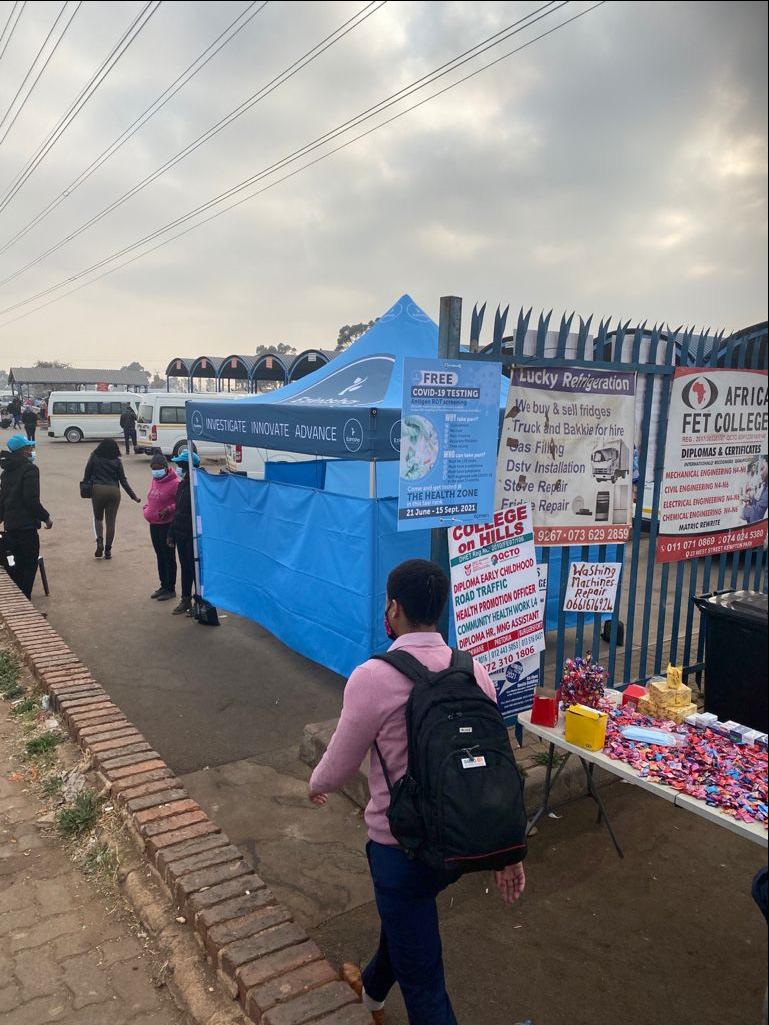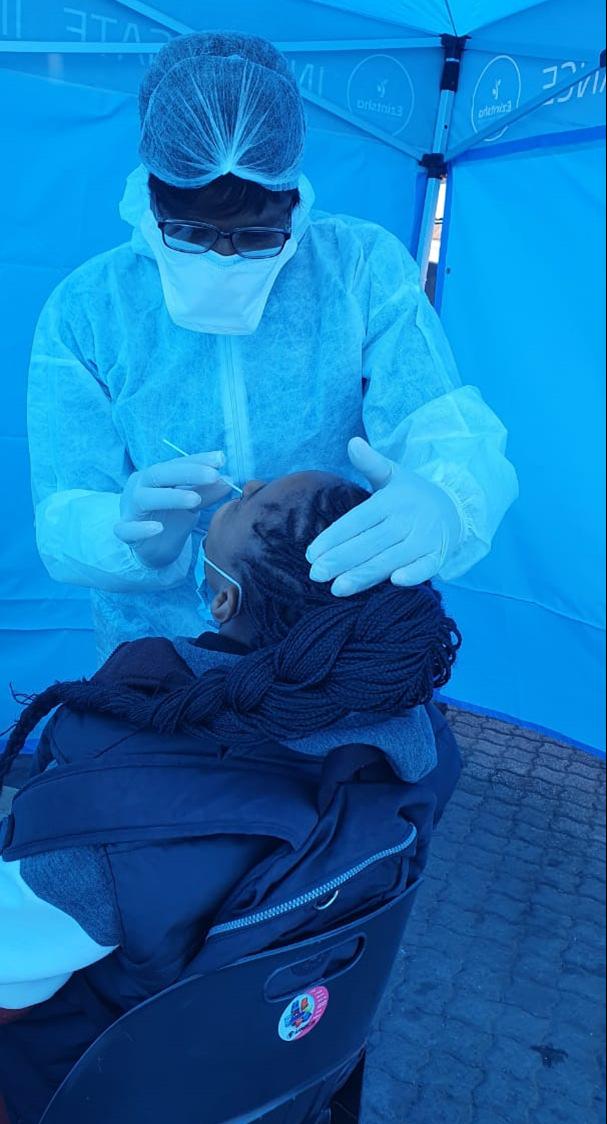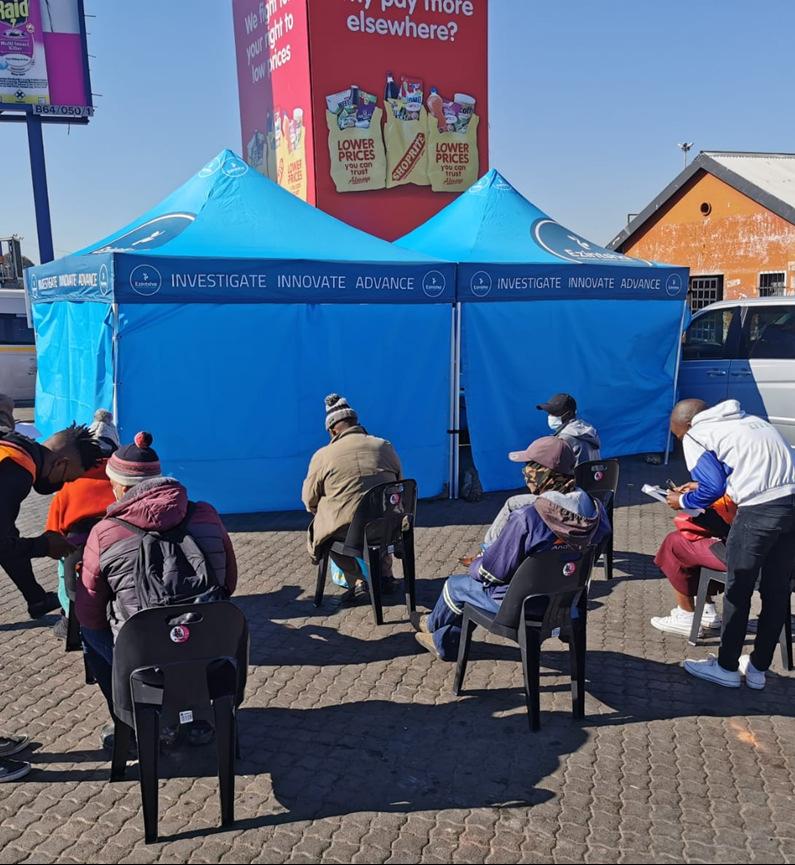
3 minute read
Ezintsha works to improve aspects of health care in the public sector
Ezintsha works to improve aspects of health care in the public sector, with a particular focus on treatment optimisation, drug access and medical technologies in the areas of HIV and non-communicable diseases (NCDs). Based on our experience, expertise and success, Ezintsha aims to find ways to move the needle on global health, and use what is learned to inform public health policy and practice in South Africa, the Southern African region, and other parts of the world. Ezintsha’s study, Characterising Long COVID in South African Adults, is funded by the SAMRC. It will explore and document the consequences of Long-COVID in three large, well-described clinical cohorts of African patients surviving SARS-CoV-2 prior to vaccination, recruited from prevention and early treatment clinical trials conducted between 2020 and 2022, and from hospitals. The syndrome, common in COVID-19 survivors, can affect every organ system through as-yet uncharacterised but presumed immunological mechanisms. The consequences may be disabling and appear to be more severe in those at risk for, or surviving, severe COVID disease. Symptoms and dysfunction tend to slowly resolve but it is unclear if disability or organ damage is permanent in some patients. Almost all studies on Long-COVID have been undertaken in higher income countries, and largely in hospitalised patients, with little data from Africa. The study will significantly contribute to understanding the components of Long-COVID and contribute significant African data to current efforts to develop both syndrome diagnostic criteria and understandings of the therapeutic needs of symptomatic survivors, in order to inform South African healthcare. Ezintsha is working on this project with a team from across WHC and the University, spanning Genetics, Infectious Diseases, Cardiology, Psychology, Respiratory and Physiology. Dr Samanta Lalla-Edward, a Co-Investigator on the study said, “ This is an exciting collaboration among multidisciplinary health researchers of the Wits Faculty of Health Sciences which will not only contribute to advancing Long-COVID knowledge but also support the development of postgraduate, early career researchers. Characterizing Long-COVID and related disability in local populations is an important first step to understanding the burden of morbidity and potential requirements of the health system in addressing symptoms and disability, an understanding which we hope to achieve through this study.” Since the COVID-19 pandemic began, there have been many diagnostic tools developed and launched around the world, while readily accessible and cost effective COVID therapeutic interventions have been scarce. Ezintsha is using a COVID-19 diagnostic tool, in combination with the opportunity presented by the imminent availability of molnupiravir, to develop a map for early treatment of COVID 19. The CoTeT project will find the optimal scaled pathway to immediate treatment initiation following a positive test result, using a point-of-care antigen test, to support the most cost-effective use of likely limited drug supply, optimizing case finding within the first 5 days of symptom onset using a simplified checklist, and linking appropriate, easy-to-identify patients in a primary care or community setting to immediate treatment initiation. In the process, high-quality safety and efficacy data on local populations in urban, semi-urban and rural areas will be accumulated, and an advisory group led by the SA DoH to advise on pathways to diagnosis and earlyuse COVID-19 antiviral treatment will be developed and supported.
Advertisement

The study will develop a primary care COVID-19 testand-treat early-use model, for 2000 early COVID-19 high-risk patients in different clinical settings in South Africa and compare their outcomes to 2000 patients receiving standard of care.
Professor Francois Venter commented, “One of the sad realities of COVID is that it is clear that it is possible to get repeat infections, despite having had previous vaccines and bouts of the virus, and these infections are often severe enough to cause significant morbidity. This morbidity translates into absenteeism at work, as well as occasional hospitalisation and even death, meaning that work on these early treatment drugs is really critical. However, diagnosing COVID early on is a challenge in the South African environment, so our parallel work for the Department of Health to show meaningful impact in finding patients early, and then linking them to care quickly so they can get these drugs, is extremely important.”








